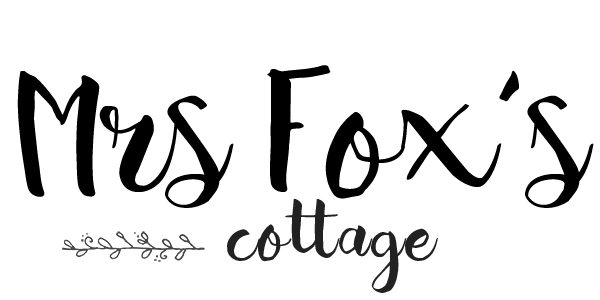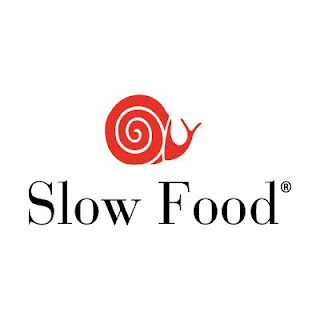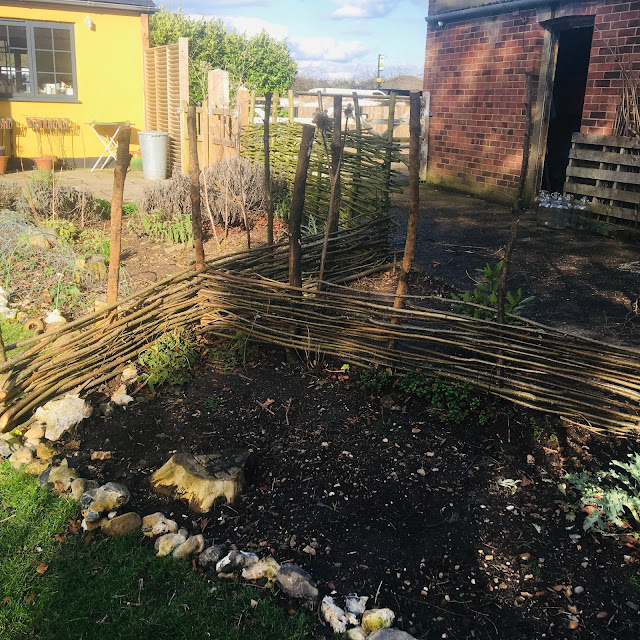At Little Hadham Stores I work with some wonderful suppliers. I simply refer to them by their first names in the order email that goes out every week. So, as we have many new customers I thought I should take the time to introduce them.Paola makes our Italian meals and is an amazing cook. I do not know how she puts exactly the same ingredients into her sugo (passata) as me and yet hers tastes so much more complex. I love Italian food; I lived in Bologna for 6 months, travelled throughout the country and have close friends that I have visited regularly in Florence, Venice and Sardinia. Paola's food is still some of the best I have ever tasted. And my children are massive fans of her cooking, I quote; "...anything Paola makes will be perfect" (Louis, aged 11)Paola grew up cooking with her Nonna (grandma), mother & aunts. She loves the very simple thing of ingredients turning into something that is delicious. Very interested in regional Italian cooking, Paola has travelled extensively in Italy, trying all the regional foods, Emilia Romangna is one of her favourites. Poala's Nonna was from Venafro a beautiful little town in between Rome & Naples. On her paternal side she is Pugliese. She hopes to gather her knowledge and pass it on to her customers with her cooking. She is increasingly becoming more adventurous in her handmade pastas stuffed or otherwise!
Fiona I secretly think is a magician. For me it all started with her soda bread, but Fiona's cooking is an adventure with seasonal, foraged and forgotten ingredients. My weakness is the food of my childhood, I love sweet potatoes and coconut and Fiona can make them into muffins and macaroons to die for. I had the absolute pleasure of going on my first fermentation course with Fiona and I love her kimchi and krauts. In fact if you tell me Fiona has made it I will eat it.
Her ingredients are always certified organic and she sources what is available in the UK & locally as a rule. The traceability of ingredients is hugely important to Fiona.Fiona also forages in Bishop’s Stortford in order to appreciate nature’s pantry and the changing seasons. This also adds flavour & important nutrients to her selection of products so they can be at their best.
https://www.slowfood.org.uk/
Fiona is a member of the slow food movement, & believes in the sustainable food system and local food economy which they support; she wears her snail with pride.
Part of Fiona's interest in slow food is the cultivation of wild bacteria, to transform raw ingredients into products far more complex, flavourful and digestible to us, which give us the all important healthy gut we need right now to boost our immune system.
Meet the Makers - Part One
little hadham stores,
local food,
organic,
sustainable living
Sunday 26 April 2020
Ugly Veggies and Seasonal Eating
gardening,
little hadham stores,
organic,
sustainable living,
veggies
Friday 10 April 2020
 |
| The Parsnip Baby |
I work with a very committed and hard working farmer who believes in organic production and sustainable agriculture systems whole heartedly. He leases his land in Sawbridgeworth and Stanstead Abbotts, which he has had organically certified, or is in conversion. He lives and grows on the land and sells his produce to an organic wholesaler in Cambridge, COFCO. Where he uses the produce from his and other organic farms, mostly in Hertfordshire, Cambridgeshire, Kent and Suffolk, for our veg boxes. COFCO do also import organic produce, mostly crops that do not grow in the UK climate, ie lemons, ginger and tumeric. A lot of the fruit in the boxes right now is from overseas. Because we do not have fruit in season in the UK in April.
We are entering what used to be called the hungry gap. (A great description on the Riverford blog). Our latitude and temperate climate puts us in this position in April, May & Early June. It is when we are coming to the end of our winter stored veg, the over wintering crops are starting to bolt as the weather warms up, making them woody and inedible, and new spring crops are not yet ready to harvest.
We now import produce to cover this period in the UK, and we also grow things under cover - but this can have real negative impacts on the environment. (There is a great local exception to this; Guy & Wright Tomato Farm ) I'm not suggesting that this should change, I don't want people to starve. But we are also, at times, unnecessarily picky about what our fruit and veg looks like and how it arrives with us, and this creates waste. I'd suggest if we were a bit more tolerant, so that producers did not throw away these blemished or misshapen veg, we might need to import less. Our veg boxes are therefore tolerant of "ugly veg". It's no less fresh than the same washed British produce you buy in the supermarket, or even some of the imported "fresh" veg that may have taken weeks to get here from the other side of the world.
My bedtime reading at the moment is Mike Berners-Lee's How Bad are Bananas? - The Carbon Footprint of Everything (Bananas - not quite as bad as you might imagine actually, which is great cos I love bananas!) A carrot's carbon footprint is about 2g of C02e (carbon dioxide equivalent) per calorie, carrots and other root veg are some of the most climate friendly foods available - and healthy too. If you buy 1 kg of carrots you are looking at;
0.25kg CO2e, local in season veg
0.3kg Co2e, on average
1kg co2e shipped baby carrots
I get one of our regular organic veg boxes most weeks. Right now they are full of root vegetables. These have been lifted (taken out of the soil) before Christmas and stored. Studies comparing conventionally grown versus organic carrots show evidence for greater nutrient richness. Levels or carotenoids, phenols and vitamin c were compared, with greater amounts observed in all three categories in the organic carrots.
If you spotted those plastic bags in the picture this is because of my issues around food waste. The soft leaves of salad crops like rocket, winter purslane and spinach do not tolerate even the relatively short distances that they are transported to us. The amount of food waste is not only shocking in itself, but you have to take into account the energy the organic farmer has put into growing the crop, water use and even the petrol/diesel used by farm machinery. There is sometimes a genuine need for plastic bags and these ones can and should be reused. (Not only that, there is some debate on the carbon foot print of paper v. plastic bags.)
Anyway, back to our root veg: Carrots and potatoes after harvest are stored still covered in mud in the dark. You will not find UK grown carrots and potatoes in the ground at this time of year. They are lifted because they are not frost resistant. Our ancestors, or those of us with veg gardens or allotments, will be eating the last of these stored winter potatoes now. This is almost as fresh as your British Potatoes will be in April. Jersey Royal potatoes, which now have a protected designated of origin, are the UK exception. Available from around now, they are usually the first "fresh" new potatoes to come into the shops in the UK. Possible only because of Jersey's more southern latitude and their development of the International kidney potato.
So, if you find blemishes in your veg box potatoes, cut them out, you only need to cut a small area around the blemish. You only need to be concerned if the skin is green. This is chlorophyll pigmentation, not in itself harmful but a sign that there is the toxin solaine in your spud. That said, toxic levels of solanine are 100th of an ounce for a 200 lb person, which translates to that person eating 20 lbs. of whole potatoes in a day! I mention whole potatoes, as the green skin on a potato is the area with the highest concentration of solanine and thus, the most toxic.
I'm getting my veg patches ready for a new year of growing and I also hope to have some herb and veg seedlings available to buy in LHStores. I'd really recommend you try growing your own and enjoying not only the process of gardening but also preparing and eating your own produce.
The Roots of LHStores
little hadham stores,
sustainable living
Sunday 5 April 2020
We have a lot of new customers and it has made me really aware that maybe not everyone really knows what we are about. So...
Little Hadham Stores is a tiny shop in rural Herts, we have been open since May 2018, (2 days a week since last September), our fresh food is all seasonal, local and cooked, baked, and delivered on a Thursday, to order. We have mostly organic dried goods available to weigh and take away in customers’ own containers, artisan crafts and environmentally friendly body, lifestyle and household products.
When my husband and I bought our house in Little Hadham, it was mostly for the big, wild, over grown back garden. The attached Victorian butcher’s shop was in a pretty poor state. After much work (it has been a store room, our children's playroom and our kitchen) the shop has finally been returned to its’ original purpose, a traditional village store, selling fresh, local, seasonal food.
I lived for 8 years in the San Francisco Bay Area and volunteered with friends on amazing edible school yard and permaculture projects in Northern California. Upon returning home to the UK, in 2000, I found the lack of environmental awareness amongst my friends and family amazing. But, I think, like many people, it was having my first child (Una) that really opened my eyes to the toxicity of the environment that we are creating on our beautiful planet.
I very much believe in sustainability as the key to solving so many problems. As such, my business's sustainable ethos is based on the carefully curated and tested products we stock, it's support of small, local, ethical, businesses and in its’ evolution. My business has to be sustainable too. It has to fit into my family’s life and be a warm and welcoming place for my community, it’s growth can be as slow as it likes, as long as it is going in the right direction.
When I first moved from East London to Hertfordshire I assumed I would be connected into a wonderful network of local food growers and producers. It’s the countryside right? It’s where the food comes from. But I actually found it quite hard to find good quality, ethically produced food. In 2017 I took over the running of Little Hadham’s monthly farmers’ market. Already a great way to reduce your food miles, I banned plastic bags and have been trying to improve it’s eco credentials ever since.
 |
But I also support an organic smaller holder based in Sawbridgeworth, not just by stocking their veg boxes, but also giving my time to help with their online presence and promotion. Little Hadham Stores regularly changing, fresh, seasonal food includes foraged ingredients and tries to highlight great under-rated British crops; like winter purslane and medlars. We sell beautiful British cut flowers from a local grower in her first year of business, another mum inspired to find work that fits with her children.
I like to think that when you come into Stores, you’re being welcomed into my home. The eggs in the shop are from my own hens, herbs and some veggies, from my garden, beeswax products from my bees. I know the story of and I’m passionate about everything in my shop, from the bread to the gluten free pasta, the rapeseed oil to the tinned tomatoes, everything has been chosen carefully by me.
But Stores has evolved so much since we opened, and we offer more than just food. We have regular evening events, including talks, craft workshops and Supper Clubs. Little Hadham Stores is all about a community of makers and growers supporting each other. And trying to offer their community another way of consuming that is gentler on the planet. The fact that Stores is also my home I think makes it all the more special, as we are literally welcoming our community in.
Subscribe to:
Posts (Atom)






































